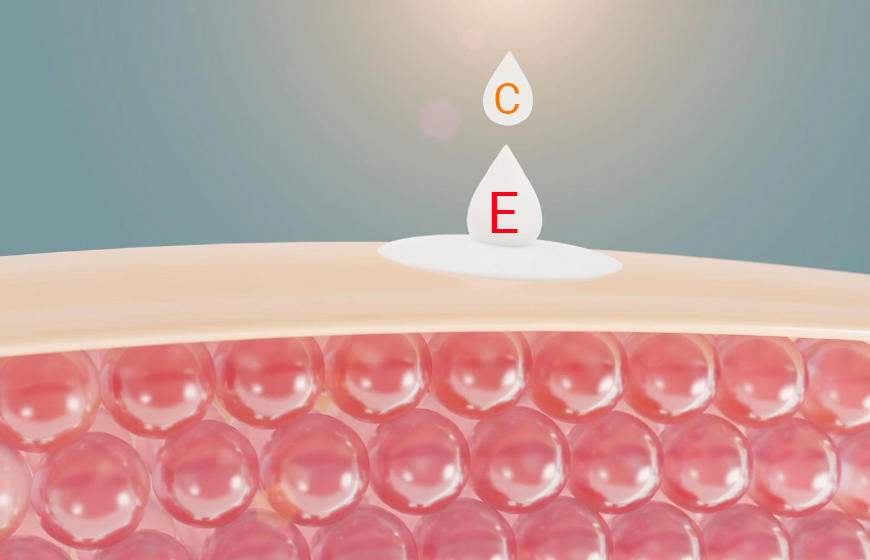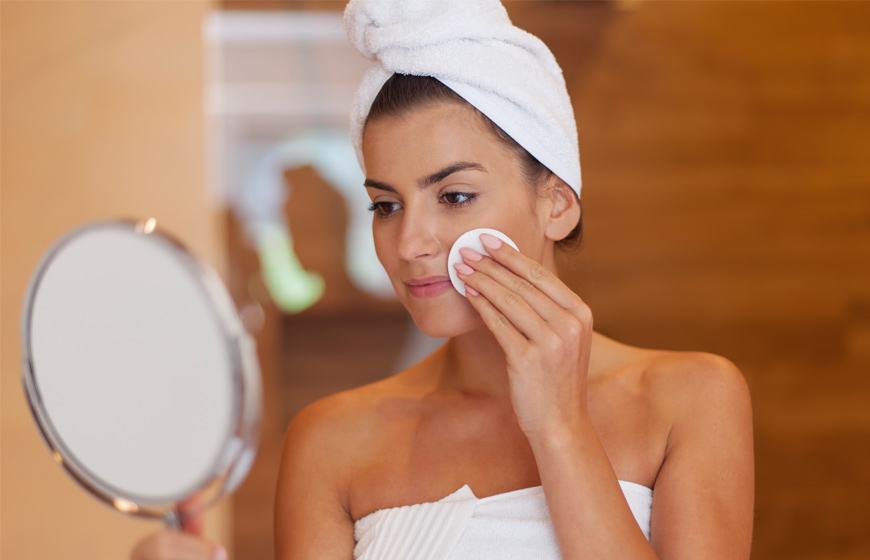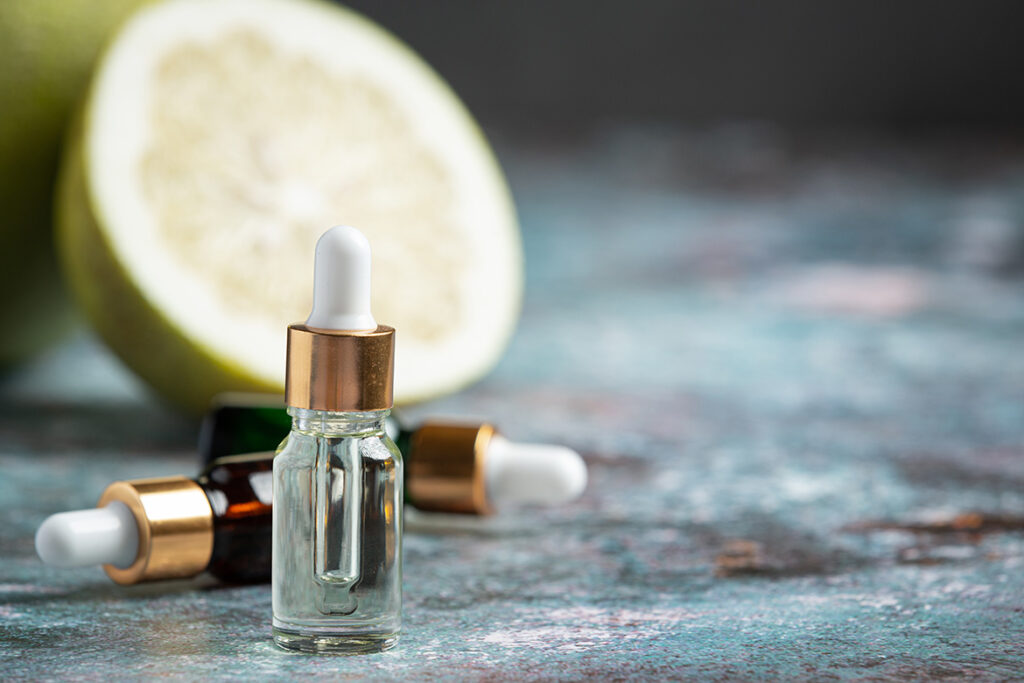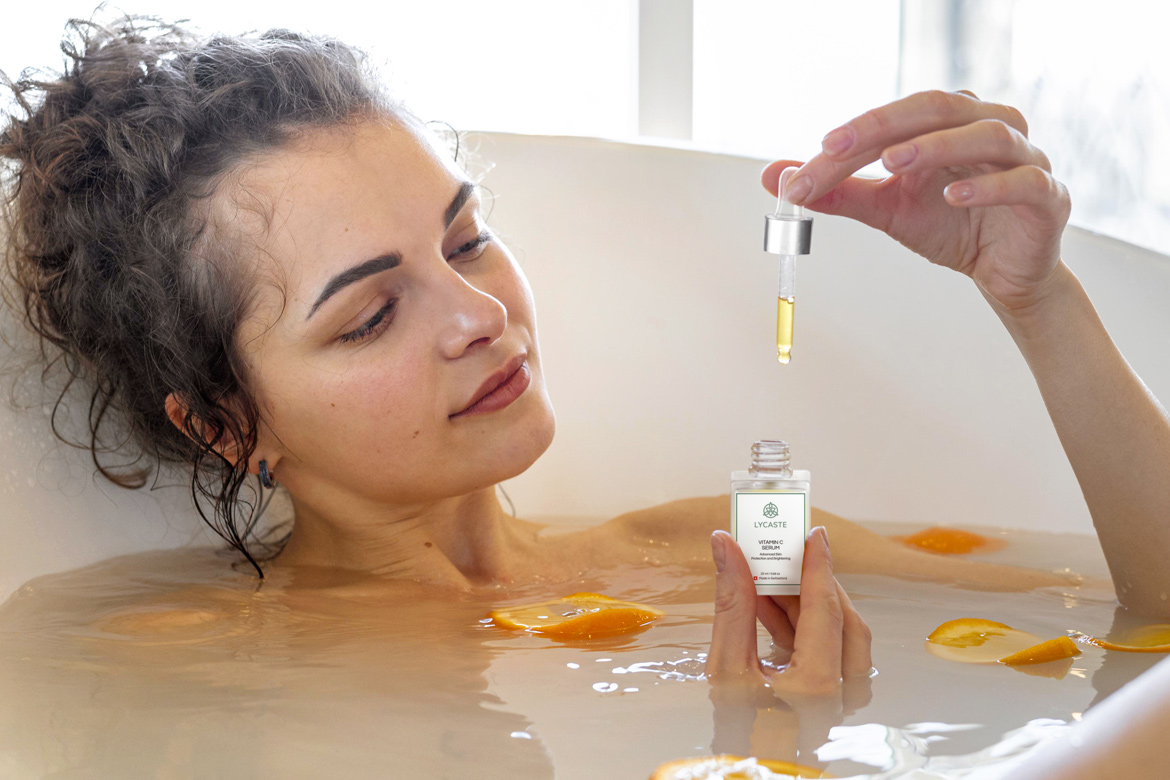- What do vitamin C and vitamin E serums do for your skin?
- Can you apply vitamins C and E together on your skin?
- When should I use vitamin C and vitamin E serums?
- Which vitamin C and E serum is best for your face?
What do vitamin C and vitamin E serums do for your skin?
The modern beauty industry has a lot to offer and it can sometimes be quite overwhelming to decide what products you should use to achieve the best results. There are many new skincare products out there that promise to give you flawless skin, but there are some that stood the test of time and always keep these promises: vitamin C and E serums.
Hydration is crucial for any skin type. Vitamin C serums are known to retain water in your skin, keeping it naturally plump and glowy. The loss of moisture leads to premature ageing, so in keeping your skin moisturized, vitamin C brings an anti-ageing benefit as well.
As any person is daily exposed to free radicals and pollution, a vitamin C serum is a must-have in your skincare routine because it neutralizes harmful particles, an effect it shares with vitamin E. The antioxidant properties of vitamin E balance out the damages caused by free radicals, simultaneously having both a moisturizing and a hydrating effect on your skin.
Due to its anti-inflammatory properties, vitamin E soothes the skin and helps to minimize redness. Vitamin C and E serums have a restorative function and are a known enemy of fine lines and hyperpigmentation. By inhibiting melanin formation, these serums help brighten the skin and can reduce the colouration in the spots of healed acne.
Can you apply vitamins C and E together on your skin?


Dermatologists all over the world agree upon one answer: yes, you can and you should.
Not only do these two ingredients have an overall benefit for your skin, but vitamin E also stabilizes vitamin C which has a more gentle effect on your skin, minimizing the risks of adverse reactions.
When used together, these two vitamins are most effective in treating melasma, sun spots or age-related spots, at the same time enhancing your skin barrier. Many vitamin C serums contain vitamin E in them because both these ingredients complement each other, providing your skin with the natural boost it needs.
While they have an overall anti-inflammatory and soothing effect, vitamin E serums have not been proven to treat acne, but if paired with vitamin C, they can help smooth the appearance of acne scars and acne-associated redness.
It is extremely important to take your skin type into account when choosing products for your skincare routine. Although vitamin C and E serums are undoubtedly beneficial for most people, you might want to be cautious if you have never used any of them or if you are not sure about what your skin needs.
If you have sensitive skin, be aware of how your skin reacts to a vitamin E or vitamin C serum. Serums are generally concentrated solutions, so they can sometimes be too potent and cause irritation.
Vitamin C, due to its acidic properties, brightens the skin, but it can also be irritating for sensitive skin types.
It is always better to introduce new products in your skincare routine gradually, one by one, and observe what effects they have on the skin and if any allergic or unpleasant reactions appear. It can also take some time for the skin to get used to a new product and for the desired effects to appear.
When should I use vitamin C and vitamin E serums?


Both of these serums can be used either in the morning or at night, but morning use has some additional and very important benefits.
When used in the morning before applying sunscreen, vitamin C enhances the strength of the sunscreen and gives your skin more protection against UV rays.
UVA and UVB rays are extremely damaging to your skin and they have been proven to be the cause of dehydration, premature ageing, and, most importantly, skin cancer. Protecting your skin from the sun significantly reduces these risks.
Dermatologists advise that you always apply sunscreen before going outside, and using a vitamin C serum in combination with vitamin E is said to increase the protection of the sunscreen up to four times.
Used at night, these serums even the tone, calm and soothe your skin, preparing it for a well-deserved rest.
Which vitamin C and E serum is best for your face?


When choosing a product for your skin, you should always pay attention to the list of ingredients and packaging.
Vitamin C is considered an unstable ingredient, so most of the vitamin C serums contain L-ascorbic acid or other derivatives that are safe to use and that will bring the most benefits to your skin. L-ascorbic acid is the most popular and widely-used ingredient, although people with very sensitive skin might find it too acidic and irritating, but they might react better to the derivatives.
Water-based vitamin C serums with a concentration from 10% to 20% are considered an optimal solution for achieving an even and bright skin tone. Skin can only absorb so much, so a higher concentration of vitamin C does not equal better and faster results.
Because of the oxidizing properties of vitamin C, it should not be exposed to light or oxygen. The safest and most effective vitamin C serums are sold in dark bottles with a tight seal. To preserve all the beneficial properties of the serum, keep it in a dark and dry place.
After applying the serum to your face in the morning, make sure to use a good SPF cream to protect the delicate skin of your face.
There are 8 different varieties of vitamin E, of which tocopherol and tocopheryl acetate are the ones used for skincare products. When checking the ingredients list of a vitamin E serum, you will most likely find one of these on it.
The usual concentration of vitamin E in a serum is 1%, which is sufficient to rip off all the benefits the product has to offer.
When purchasing a serum that combines vitamin C and vitamin E, make sure the packaging protects it from light and air which can make it lose its properties.
Whichever brand of product you choose, always remember that consistency yields the best results when it comes to your skincare routine. Slathering your face with a lot of product one day a week and skipping the rest six will have absolutely no effect. Taking care of your skin regularly can be exceptionally rewarding, though.
